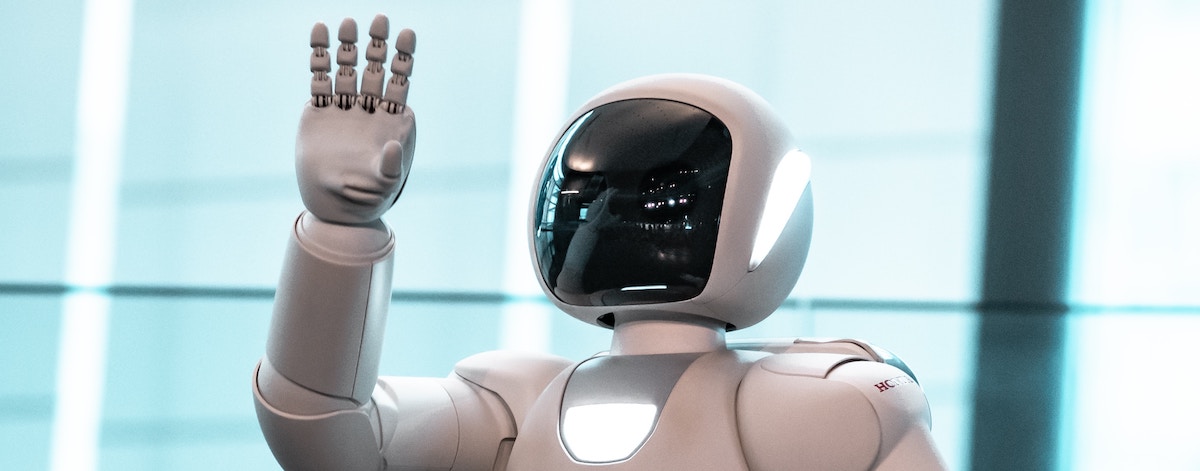Robots are in high demand soon to be working at a place near you. In the last years, the number of industrial robots deployed worldwide has dramatically increased with Europe being among the global frontrunners. Besides robots seizing factories, their smaller versions have also found a fixed place in our homes, from Amazon’s personal assistant Alexa to the vacuum cleaning Roomba robot hoovering the floor. Now the EU prepares for robots to get their own laws – and this is just about time.
In preparation of a legislation, members of the European parliament have discussed and passed an ambitious resolution that aims to pioneer a comprehensive “Robo Law” in January. They believe that EU-wide rules are needed for this fast-evolving field which is likely to affect all of us sooner rather than later. Indeed, this is likely to be the case. Research into a neighbouring field, the internet of things and its small robots, clearly shows a fundamental transformation. Mapping the internet of things for a forthcoming book, the research that I have conducted together with Graham Meikle found new technical abilities. From tracking to seeing to speaking things – and robots – are learning new skills. Fueled by new ways of machine learning, our technology has started to process ‘meaning’ and is entering new fields. It is likely that these skills evolve further, and will be advancing not just the internet of things but robots, too.
.
Questions about the societal impact of advancing things and robots have now been taken up by the European Union. As a member of the European parliament Mady Delvaux was among those who pushed the topic on the agenda of the European Union: “The main objective was to kick off the debate on all of this,” she says. “AI and robots are going to affect all parts of our lives. And we cannot leave the debate up to scientists. We, as civil society, have got to know, since we are going to react to and interact with robots.”
Worried that – thanks to their robots – companies will be more productive than ever while employing fewer and fewer workers, the Committee on Legal Affairs of the European Parliament has been holding a public consultation. Among the options the public could answer were a couple of alarming questions. One asked about corporate reporting requirements for robotics and artificial intelligence, which should be registered like cars in order for them to be taxed. Would registering robots be for the good of society? Or will such a scheme rather obstruct economic opportunities ? At the moment, a future in which productivity is high because robots work for us, and we are free to do other things, seems to us like a science fiction story in which humans live on the Red Planet Mars. But then just the other day, NASA announced that sending humans to the Red Planet is already “well under way” to be happening “in the 2030s”.
Regarding robots, the numbers are indeed alarming. If automation continues to rise, a not-yet robot friendly country such as the UK faces the wipe-out of more than 10 million workers in the next 15 years – and this despite not being among the major robot sales markets. Artificial intelligence will add to this: 30% of jobs in Britain might be under threat, a report by PwC states. Other Western nations face a similar development, among them the five biggest robot markets starting with China and followed by Korea, Japan, the U.S. and Germany with the accelerating growth of robot sales in Eastern Europe catching up.
Should we just pull the plug? This does not seem a valuable option in view of robots and AI’s strong benefits. Artificial intelligence has proven valuable in advancing medical solutions. And our research showed that both robots and AI could be an important alley to tackle the more and more urgent social question of care for aging Western populations. Besides, there are clear economic benefits adding up to £625bn for the UK economy within the next twenty years, if one follows a recent statement of the consultancy Accenture. And so it is of no wonder that Culture Secretary Karen Bradley announced a review into the development of artificial intelligence a few weeks ago.
But the challenge our societies face here is not just to balance the economic benefits with ethical issues but a much more fundamental change: technology is likely to become as influential in our societies as economy and politics are. Social sciences and the humanities are needed in order to translate this change. A technophobic reaction to this is likely but it is neither helpful nor effective. Instead next to economic incentives we need an understanding of the ethical, legal and societal ramifications. The new developments of technology such as robotic automation and machine learning need to be understood as evolving fields. As researchers, politicians and business people it is our joint responsibility to shape them.
Photo by Maximalfocus on Unsplash
.












